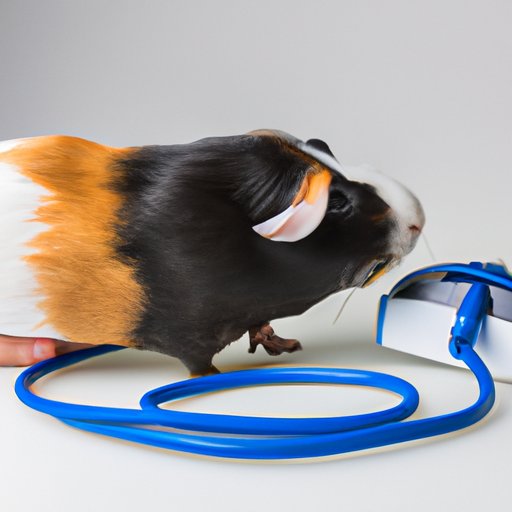Introduction
Guinea pigs are one of the most popular small pets. With their friendly personalities, adorable features, and need for human interaction, it’s no surprise that they have become such beloved companions. If you have recently adopted or are considering adopting a guinea pig, this article will provide you with all the tips and information you need to know about taking care of them properly.
Overview of Guinea Pigs
Guinea pigs, also known as cavies, are small rodents native to South America. They typically weigh between 1-3 pounds and can live up to 8 years. They can be found in a variety of colors, including white, brown, black, and cream. Guinea pigs are social animals and enjoy being around other guinea pigs, as well as humans. They are active during the day and sleep at night.
Purpose of Article
This article will provide you with all the information you need to know about taking care of your guinea pig. We will discuss topics such as providing appropriate housing, feeding a balanced diet, offering plenty of exercise and playtime, giving your guinea pig attention and bonding time, cleaning the cage regularly, and making sure to take your guinea pig to the vet occasionally. By following these tips, you can ensure that your guinea pig is happy and healthy for years to come.
Provide Appropriate Housing
The first step in taking care of your guinea pig is to provide them with an appropriate home. The size of the cage should be large enough for your guinea pig to move around comfortably. A minimum cage size of 7.5 square feet is recommended. It should also be located in a quiet area away from drafts and direct sunlight.
When it comes to substrate and bedding, it is important to choose materials that are safe for your guinea pig. Wood shavings, hay, and shredded paper are all good options. Avoid using cedar or pine shavings, as these can be toxic for guinea pigs. You should also make sure to provide your guinea pig with plenty of hiding places, such as tunnels and boxes.
Feed a Balanced Diet
Your guinea pig’s diet should consist of fresh vegetables, hay, and a high-quality fortified pellet. Fresh vegetables should include dark leafy greens, carrots, and cucumbers. Hay should be offered daily and should be free of mold and dust. Pellets should be high in fiber and low in sugar and fat. Vitamin C is essential for guinea pigs, so it is important to provide them with foods that are rich in this nutrient. Fruits and vegetables, such as oranges, strawberries, and bell peppers, are good sources of vitamin C.
Offer Plenty of Exercise and Playtime
In order for your guinea pig to stay healthy, it is important to provide them with plenty of exercise and playtime. Toys and enrichment items, such as tunnels, balls, and chew toys, are great ways to keep your guinea pig entertained. You should also make sure to give your guinea pig time out of the cage every day. This is a great way for them to explore and get some exercise.

Give Your Guinea Pig Attention and Bonding Time
Guinea pigs are social animals and need plenty of attention and bonding time. Handling and grooming your guinea pig often is a great way to build trust and form a bond. You should also make sure to interact with your guinea pig regularly by talking to them, playing with them, and offering treats. Additionally, if you have other pets in the house, such as cats or dogs, it is important to introduce them slowly and supervise any interactions.
Clean the Cage Regularly
It is important to clean your guinea pig’s cage regularly in order to keep them healthy. You should spot clean the cage daily and do a deep clean once a week. When cleaning the cage, make sure to use non-toxic cleaners and avoid using harsh chemicals. Additionally, make sure to replace the substrate and bedding every few weeks.

Make Sure to Take it to the Vet Occasionally
It is important to take your guinea pig to the vet occasionally for checkups and vaccinations. Your vet can check for any health issues and provide advice on diet and care. Vaccinations are also important, as they can help protect your guinea pig from disease. Make sure to ask your vet about the best type of vaccine for your guinea pig.
Conclusion
Taking care of a guinea pig is not difficult, but it does require dedication and patience. By following the tips provided in this article, you can ensure that your guinea pig is happy and healthy for years to come. From providing an appropriate home to feeding a balanced diet and taking it to the vet occasionally, you can give your guinea pig the best possible care.


